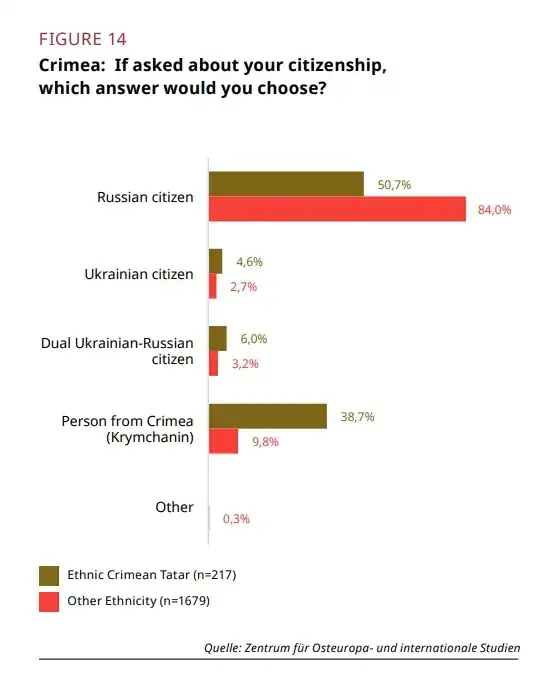In July 2016, Donald Trump, as a US presidential candidate was quoted by ABC News as saying:
The people of Crimea, from what I've heard, would rather be with Russia than where they were.
Politifact confirmed the quote and looked into reports at the time about whether this demonstrated ignorance of the "geopolitical developments" in Crimea.
"Okay, well, he's there in a certain way, but I'm not there yet," Trump responded. "You have Obama there. And frankly, that whole part of the world is a mess under Obama, with all the strength that you're talking about and all of the power of NATO and all of this, in the meantime, he's going where — he takes, takes Crimea, he's sort of — I mean. …The people of Crimea, from what I've heard, would rather be with Russia than where they were."
Many news outlets interpreted this as Trump’s ignorance. But it’s not entirely clear if the ridicule is completely warranted.
...
So we’re not putting Trump’s statements on the Truth-O-Meter, but we did want to examine Russia’s presence in Ukraine more in-depth. Let’s brush up on some modern Eastern European history.
This old story was revived today by a quote-tweet by Rick Wilson, retweeted by David Leavitt, who is currently a Twitter verified user, the accuracy of the claim called into doubt by many tweeters (for example).
The impression I have is that the Soviet Union "ethnically cleansed" Crimean Tatars living there, leaving the place with a high proportion of ethnic Russians, many of whom nowadays prefer to be with Russia than Ukraine.
In 2016, did the Crimean people want to be aligned with Russia or Ukraine?
Note: This isn't about whether the Crimean referendum is legal, or whether Russia's annexation of Crimea is legal.
